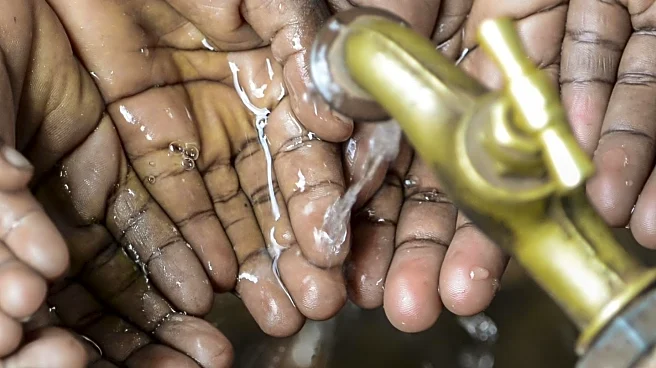What's Happening?
The World Health Organization (WHO) is actively responding to a new Ebola outbreak in the Kasai province of southern Congo, marking the first such outbreak in the region in 18 years. The outbreak, confirmed on September 4, has seen the number of suspected cases rise from 28 to 68, with 16 deaths reported by the Africa Centers for Disease Control and Prevention. The WHO has delivered 400 vaccine doses to the epicenter in Bulape, with an additional 1,500 doses expected from Kinshasa. The response is challenged by limited access and funding, with the WHO projecting a cost of $20 million for the next three months, while Congo's national response plan is estimated at $78 million. The U.S. had previously supported Ebola responses in Congo, but recent funding cuts have impacted current efforts.
Why It's Important?
The outbreak poses significant health risks, particularly to healthcare workers, with four confirmed cases among them. Vaccinating these frontline workers is a priority to ensure continued care for the population. The outbreak's management is crucial to prevent its spread to other provinces, which would require more resources. The situation highlights the importance of international support and funding in managing health crises, especially in remote areas with poor infrastructure. The U.S. funding cuts underscore the potential impact of reduced international aid on global health security, emphasizing the need for sustained financial commitments to combat such outbreaks effectively.
What's Next?
The WHO and Congolese authorities are intensifying their response efforts, collaborating with the U.N. peacekeeping mission in Congo to improve access to affected areas. The focus remains on vaccinating healthcare workers and tracing contacts of suspected cases to contain the outbreak. The situation will require ongoing monitoring and potentially increased international support to ensure adequate resources are available for a comprehensive response. The WHO has not yet declared a public health emergency, but the evolving situation may necessitate further action depending on the outbreak's progression.











